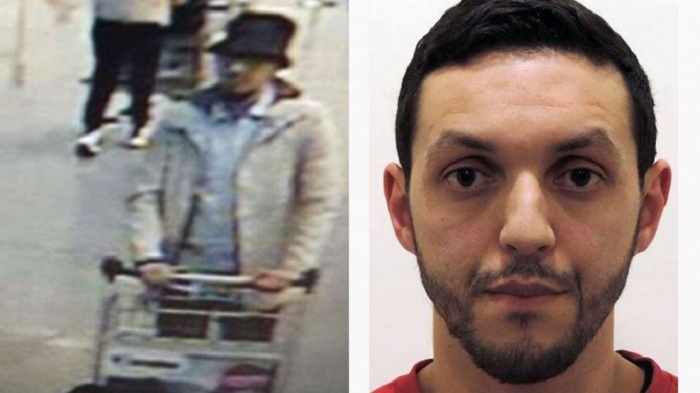What he told officials about his work for ISIS after his capture — revealed in the just completed trial of another jihadi in the U.K. — shows how the terror group runs its operations and hands out its deadly missions.
The Man in the Hat was a prolific burglar, a Manchester United fan with a gambling habit, and a neighborhood friend of several of the plotters in the Paris and Brussels terror attacks who traveled to Syria and Britain as a courier for ISIS.
Mohamed Abrini, 31, a Belgian of Moroccan descent, was picked up in Belgium on April 8. His confession allowed authorities to identify and charge two men from Birmingham, England as accomplices in the attacks.
But Abrini didn`t like the way his statements were leaked to the media, and how he was branded a "supergrass," or snitch. He refused to testify against the two men, who were charged with supplying money for the attacks. Prosecutors used his confession as evidence instead, reading the transcript aloud in court. A jury found Belgian national Zakaria Boufassil, 26, guilty on Tuesday. Mohammed Ali Ahmed pleaded guilty last month.
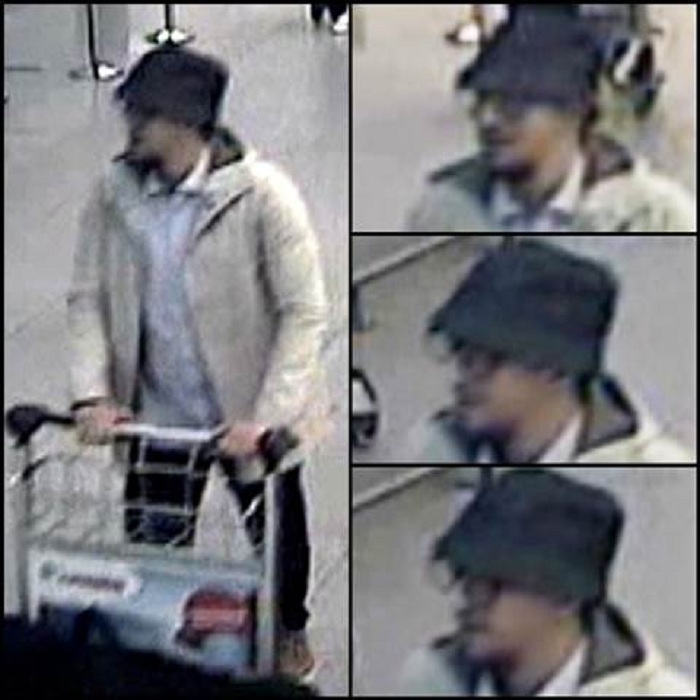
Journey to Raqqa
Abrini was friends with at least three of the Paris and Brussels attackers, Bataclan massacre mastermind Abdelhamid Abaaoud and brothers Salah and Brahim Abdeslam. Brahim blew himself up in a restaurant during the Nov. 13, 2015, Paris attacks, while prosecutors say Salah provided transport to the attackers and may helped assemble explosives. All shared a history of petty crime, and one of Abrini`s brothers had already traveled to Syria to fight for ISIS.
Abrini would soon follow. Authorities would later say that in addition to participating in the Brussels attack on March 22, he had driven Salah Abdeslam to Paris two days prior to the Bataclan massacre, in which 130 people died.
In his statement to Belgian police, Abrini said that he knew Abaaoud "from the neighborhood," the heavily immigrant suburb of Brussels known as Molenbeek, "but didn`t really hang out with him much." Abrini ran a snack bar at Rue Ransfort. Abaaoud, who sometimes worked at his family`s clothing store, had a police record for assault and other offenses.
"He had a business only meters from my place and so our paths crossed often and we chatted together now and then, no more," he said.
Abrini said he went to Syria simply to pay tribute to his little brother. "My reason for going to Syria was to see my young brother`s Soulaymene`s grave," he added.
Soulaymene went to Syria in June 2014 and died in Deir Ezzor in Syria around August 2014.
Before heading to Syria, said Abrini, he contacted two people, Youssef Barzarouj and Abdelhamid Abaaoud.
Barzarouj explained the journey to him, telling him how to get into Syria, he said.
"He told me which steps to follow and it was he who gave my number to the border crossing facilitator so that I would be able to cross the border," Abrini said.

Belgian Federal Police released a photo of Mohamed Abrini, a suspect in the Paris terrorist attacks.
"He called the person in question and I took the phone from him and we discussed things."
Barzarouj had been fighting in Syria. He told Abrini that his friend and neighbor Abaaoud was "near Iraq."
Abrini said that at this point he had nothing more than a phone contact for Abaaoud, obtained through "a person from the neighborhood."
At the end of June or the beginning of July 2015, Abrini went to Turkey.
He used money earned at the snack bar, he said, to buy his round-trip ticket to Istanbul, paying 700 to 800 euros in cash at a travel agency in central Brussels.
"In fact, initially I thought I would be able to go to Syria directly and then from Syria back to Turkey during the time that I had booked the travel," he claimed.
"I booked a ticket to Istanbul and a hotel near the Blue Mosque in the centre of Istanbul."
Abrini arrived in Istanbul and bought a phone card at the airport, presenting his passport for identification, before ringing Barzarouj on a number he said he couldn`t remember any more.
Abrini went to Adana and Gazientep in Turkey before crossing the border into Syria.
Once in Syria, he headed to Telabiad where he stayed in a small house, which served as a staging post to Raqqa, the capital of the Islamic Caliphate.
A "man in a van" who was "part of Islamic State" took him to Raqqa, he said.
"In Raqqa I was put in a house that had everything - TV, food in the fridge," he added.
Abrini met Abaaoud "at the entrance to Raqqa" and they spent an hour together.
"We talked a bit about everything and anything he talked about battles he had been part of where my brother had died and the circumstances of the death," Abrini told the officers.
Abrini and Abaaoud arranged a second meeting.
"The first time we talked about a bit of everything and anything and the second time he asked me if I could do him a favor," he added.
The Mission
Abaaoud gave him two phone numbers in the U.K. and told him to travel to the U.K. and call the numbers when he arrived.
"I only knew that I was supposed to go to the U.K. make contact with the numbers that Abaaoud gave me."
Abrini left equipped with two British phone numbers and the knowledge that a Belgian was supposed to receive the money.
"From Turkey, I then went to the U.K., to London to be precise. In the beginning I did not know which city I had to go to. I only had the contact numbers that Abaaoud Abdelhamid gave me. Without thinking too much about it I asked for a plane ticket to London."
In London, he went to an internet cafe to buy a British SIM card to phone his British contact, although he had not been given a name, he said.
"As I understood it, the person I was supposed to meet in the U.K. was in contact with an individual in Syria and that individual in Syria had loaned money to Abdelhamid Abaaoud," he said.
"That is at least what I understood but I am not sure."
In London, he also made contact with Abaaoud to let him know he had arrived safely and "to say everything was in order," he said.
He described a message-taking system designed to try and keep ISIS operatives safe.
"The Turkish numbers I was contacting belonged to people of the Islamic State who are in contact with Abdelhamid Abaaoud.
"They are actually intermediaries for Abdelhamid Abaaoud — they are numbers based in warehouses, houses that do not really correspond to any person, but to places and are managed by the caretakers of these houses."
After arriving in London, he was redirected to Birmingham where he picked up a taxi from the bus station.
"I did not know Birmingham and I asked the driver to take me to a reasonably priced hotel in a Muslim neighborhood," he said.
The hotel was opposite Small Heath Park, where Abrini later met Ahmed, a U.K. national, and Boufassil, the Belgian he`d heard about.
The Meeting
There was a dummy run on July 10, when Abrini was directed to the park but the other two men circulated around the area checking him out.
Then on the afternoon of July 11, Mohammed Ali Ahmed and Zakaria Boufassil directed Abrini to a local pizzeria.
"They asked me to wait opposite that specific pizzeria. I went there as agreed. After various phone contacts, a person on the telephone with a mix of Arabic and English asked me to face the park and to wait for a person with a blue jacket with a kind of short 3/4 trousers," he said.
"After that phone contact I waited for about ten minutes and the person arrived. This person then told me to follow him while keeping a distance of between 10 and 15 meters between us.
"I did what he told me. We then crossed the large park then outside the park we crossed a bridge that passes outside the motorway. After the bridge there was a little forest and we went into there.
"There was actually a second person who waited in the forest and it was him who had the money that needed to be given to me."
He said they "spoke a little bit about the trip" and the man then asked who had sent him to get the money.
"I answered it was Abelhamid Abaaoud. On those words he took his bag out and gave me the money," Abrini said.
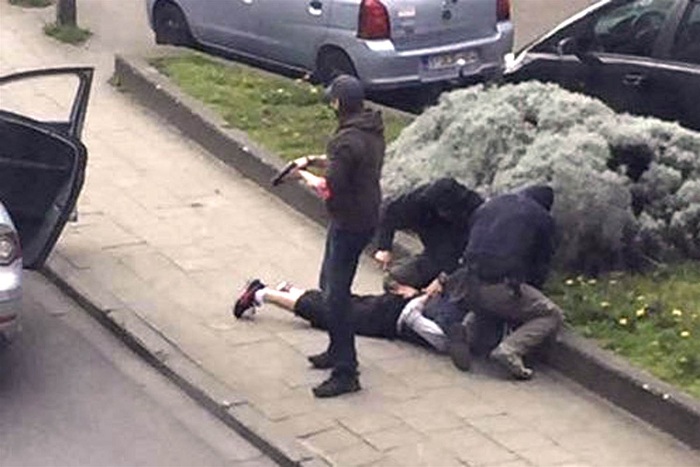
Police officers detain a suspect during a raid in which fugitive Mohamed Abrini was arrested in Anderlecht, near Brussels, Belgium, April 8, 2016 in this still image taken from video
The men didn`t count the cash, but Abrini said it was in £20 and £50 notes and he later changed it into euros, £500 to £1,000 at a time.
"It is at that moment as well that Zakaria explained to me that it had taken long because he had to verify with Syria that I was the right person," he added.
Although the three men had their phones switch off for an hour, Abrini claimed the meeting had been "for only a brief moment."
"From the forest I went to the park and from the park I went to my hotel. I left the money in the hotel and then I went for a walk," he said.
"I stayed another day or two in that city before going to Manchester. In Birmingham during the day I used to go to the cafes and shopping. At night I used to go to the casinos," he added.
It can now be reported that the British government had been surveilling Ahmed, but it was not a 24-hour operation, and the meeting with Abrini was missed. Had the British witnessed the meeting, they might have alerted Belgian authorities to Abrini long before the Paris and Brussels attacks.
Abrini turned himself in to Belgian police 11 days after he returned but denied he had anything to do with ISIS.
"I Am A Player, A Fan of Casinos"
Abrini told the Belgian officers that weather was "exceptional for the U.K.," adding: "I remember that it was nice. The sun was shining. People went out in shorts and t-shirts."
As part of the trip he traveled to Manchester where he took more than 30 photographs on a two-hour tour of the Manchester United football stadium.
He denied any plan to attack Britain, saying: "On being arrested by you, neither in London, nor in Birmingham, nor in Manchester, have I been on any reconnaissance trips in relation to preparatory terrorist attacks."
He added: "There`s no plan to target England as a potential site for a terrorist act. From what I know, it`s France who is the declared enemy of Islamic State.
"I think England has a more developed secret service, better observation techniques etc... and it`s therefore more difficult to attack."
Abrini also made at least five visits to casinos in London, Birmingham and Manchester and police wanted to know why.
"I am a player, a fan of casinos," he said. "I play, I am registered a little everywhere in casinos — Lille, Essen...I am a player it`s my addiction.
"I play Russian roulette, poker and the slot machines, but only in Lille for the slot machines."
It`s unclear if "Russian roulette" — normally played with a handgun to the temple — was actually the game he played.
Abaaoud funded his trip to Britain with £2,000 because he only had 300 to 400 euros left, Abrini said.
"With that amount I could not have gone all the way to England and sort the costs there and then," he added.
"That money was supposed to secure my costs to England, my accommodation, and my general living expenses in England. That money has also helped me secure my return to Belgium."
He said he also used Abaaoud`s money to go to the casino where he won more money, and "was able to multiply the money."
When he got back to Belgium, he had 2,000-2,500 euros left from Abaaoud`s money he said.
"I went back with more money than he had given me," he added.
The £3,000, he "never touched" during his trip to Britain and France, separating it from his "personal money" saying he had to deliver it to a person in Belgium.
The £3,000 was changed into euros in Birmingham at a currency exchange agency on the second floor of the Bull Ring shopping center, he said.
"I decided to exchange the money various times, £500 to £1,000 each time," Abrini told the officers.
"I immediately got rid of the bag which Zakaria had given me. It was only useful to transport the money from the forest to the hotel and as soon as I arrived at the hotel, I threw it away. It was not practical at all, it was too little, and so I did not keep it."
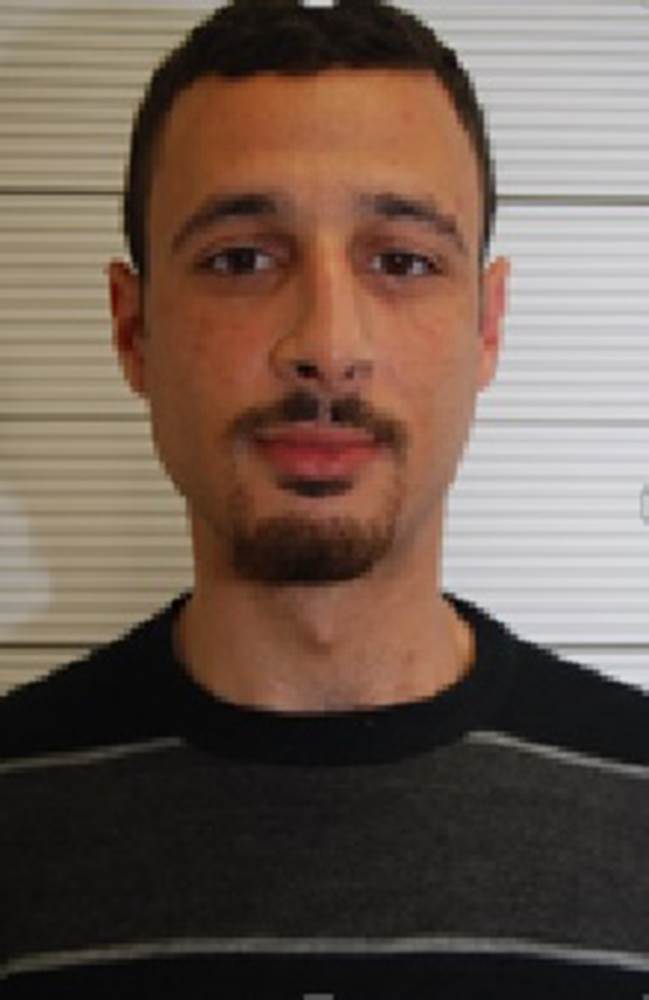
Zakaria Boufassil
Instead he bought a Hugo Boss bag in a Birmingham sports shop, he said, posing with it on the tour of Manchester United.
It appears that Abrini also made two changes of £1,000 and £2,000 in Manchester, which he described as his "personal money, for my day-to-day personal expenses."
By his own account, he had already changed the money from Boufassil in Birmingham.
"In Manchester I also played in casinos and I won at poker and the slot machines," he claimed. "That is the reason why I still had that amount of money upon leaving England.
But back in Brussels, he conveniently forgot who he was supposed to deliver the money to.
He spent "one night or two" with his former workmate Abdellah Chouaa.
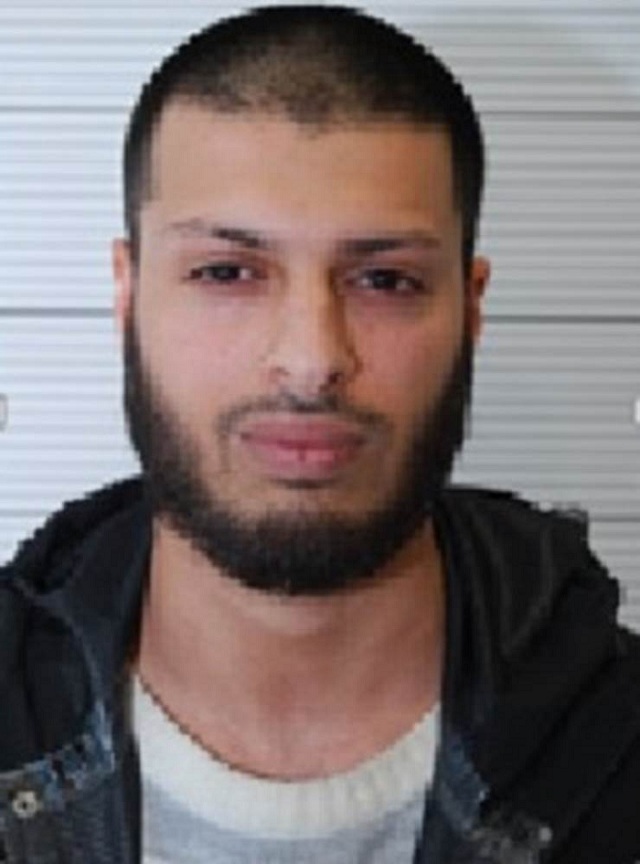
Mohammed Ali Ahmed
"I needed to deliver the money which I had gone to collect in England to a person in Brussels. The problem was that I had lost that person`s contact number," he claimed.
Initially, Abaaoud gave him a Belgian phone number in Syria and told him that money received in Britain should be given to the SIM holder in Belgium, but did not give him the name.
He said he had to give the money to someone so he went to see Abaaoud`s younger brother.
"When I got to him, I gave him the money and told him that [he should] be in touch with his brother, `Tell him I`ve given you the money.`"
But he added: "I couldn`t tell you if Yassin ended up being in touch with his brother, but what I understood from the local neighborhood was that Yassin blew it all in going out, cars and clothes."
He had no more contact with Abaaoud and "there`s never been a handing-over of money before or since," Abrini insisted.
Abrini still faces charges in both Belgium and France. He remains in custody in Belgium.
Duncan Gardham is a NBC News Secruity Analayst.








